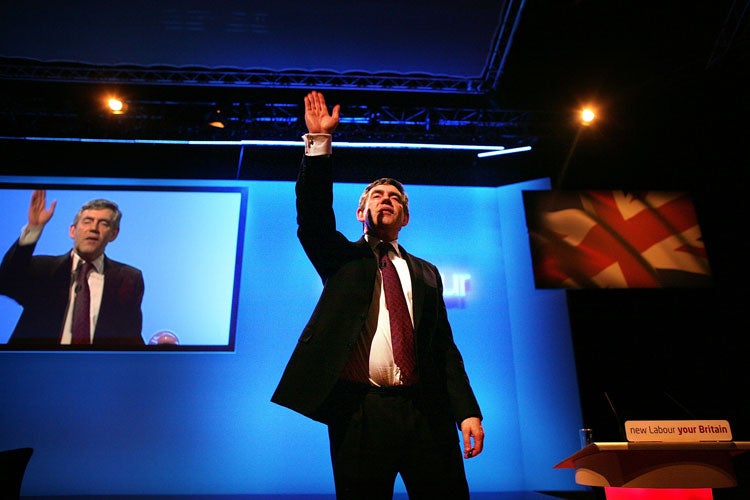PM mulls general election for June 2009

Gordon Brown is considering a plan to hold a "double election" in June next year, with elections to Westminster and the European Parliament on the same day.
The idea was discussed in the margins of Labour's spring conference in Birmingham last weekend and has won the backing of some party officials. Although allies of Mr Brown said it was "very premature" to talk about the date, party sources said he did not want to delay polling until the last possible moment in the spring of 2010.
The Prime Minister is anxious to avoid another wave of speculation about when he might seek his own mandate after his political honeymoon came to a sudden halt as he scrapped plans for an election last autumn that had been talked up by key allies.
He has ruled out a poll this year, but Labour headquarters has been told to be ready for one at any time in 2009. Although May would normally be the most likely month, Euro elections are due in June and Labour officials are arguing that it would be difficult to ask people to vote twice in consecutive months.
They believe a "double election" would boost the turnout in the Euro poll. At the last Euro elections in 2004, only 38 per cent of people in the United Kingdom voted, well below the 61 per cent who voted at the last general election. "A double election is in play as an option," one Labour source said.
While Mr Brown could go to the country in the autumn of next year, one factor in his decision to call off an autumn poll last year was a fear of a low turnout due to dark evenings or that poor weather might harm Labour's prospects.
The Prime Minister is said to want to avoid going "up to the wire" in 2010 in the way John Major was in 1997 when the last Tory Government hung on to office before suffering a crushing defeat.
One Brown ally said: "We are not in John Major territory, when Labour was streets ahead in the polls. But no prime minister wants to be boxed in and cling on to the bitter end."
The European Union has not yet fixed the date of the Euro elections, but they are expected to be held between Thursday 11 June and Sunday 14 June. The most likely date for a "double poll" in the UK would be 11 June, the one mentioned informally in Birmingham.
Last night, Michael Wills, the minister responsible for constitutional reform, raised the prospect of the Brown Government changing the voting system for Westminster elections as he praised the merits of the Australian alternative vote (AV) system. He told a seminar by the Progress think-tank that the Government was open-minded about electoral reform and wanted it to form part of Mr Brown's national debate on constitutional change. Mr Wills said AV could become relevant if the goal of reform was to allay fears about a government being elected on a low turnout. Under the system, voters rank candidates in order of preference, the bottom candidate drops out and second preferences are redistributed until one person wins more than 50 per cent of the votes.
He promised that any change would not be introduced for party political advantage and, even if it were, voters were sophisticated enough to get the result they wanted.
Voting reform would not be introduced in time for the next general election. But it could form part of an agreement between Labour and the Liberal Democrats in the event of a hung parliament.
Several EU countries hold their elections to the Strasbourg Parliament on a Sunday. A "double poll" could allow the UK to experiment with voting on a Saturday or Sunday in an attempt to boost the turnout. Such a change is favoured by some ministers but it would require legislation.
Some City analysts have cast doubt on Labour's hopes that the economy will bounce back early in 2009. But party officials say absence of a recovery would not necessarily deter Mr Brown from calling an election. They say voters may prefer his strong track record on the economy in difficult times to taking a risk by voting for a change of government. Ministers say confidence is growing that Mr Brown will be in a good position to seek re-election in spring 2009.
For rolling comment on the day's issues visit: independent.co.uk/todayinpolitics
Subscribe to Independent Premium to bookmark this article
Want to bookmark your favourite articles and stories to read or reference later? Start your Independent Premium subscription today.

Join our commenting forum
Join thought-provoking conversations, follow other Independent readers and see their replies